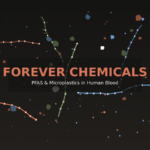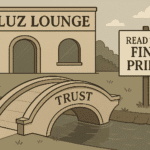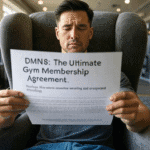
Foundation of trust
Everything I write is about trust, because everything we humans do, even if we do it with machines, in based on a foundation of trust. At a basic level, we need to trust our data, information, and knowledge. In a world where people often seek money or power through dishonest means, this creates daily stress from not knowing who to believe. For example, when the Senate questioned BP and other contractors about the Gulf of Mexico oil spill, each party provided self-serving information to avoid blame and point fingers at others.
How can we avoid going crazy wondering what part of what we hear or read is true, or which part if false? How can we trust anyone or anything, when government and corporations also put out untruths?
One answer is to promote and welcome the rise of citizen-scientists. Citizen-scientists test, measure, compare, without working for a given university, company or government agency, and they share their information through social networks where others can also test, verify, and either confirm or dispute the findings of others. If there are just a few people doing this, we won’t have a major basis for foundation of trust. However, what’s really exciting is the potential of hundreds of millions of people becoming Citizen-Scientists. Already there are millions of people in each of several areas – birdwatching, astronomy, mathematics, and testing water quality – in the US alone. Moore’s Law reduces the cost of computing power.
Many people know that. What most don’t know, however, is that the cost of professional scientific lab research equipment is getting exponentially less expensive, and used lab equipment can be found on Craigslist.com and other ecommerce sites. Also, innovative universities are making their equipment more widely available. Caltech’s Center for Biological Imaging, open 24/7, has dozens of different microscopes with cameras for high resolution images and movies. It was used by over 250 people, from 40 different departments. This is even more impressive when you consider that there are only 1,000 undergraduates at Caltech, so great percentage of the students and staff have made use of millions of dollars of equipment.
Coming back to foundation of trust, imagine an America and a world where every claim was tested by several different people, each of whom had built a rock-solid reputation for trustworthiness by being open and transparent about their research data. In this future, Citizen-Scientists would be the new rock stars, liars would be found out and stopped long before they came to power, and IT companies would experience a steady increase in demand for bandwidth to handle all the tests and studies that were being exchanged. Those ultra-high resolution Caltech images can be many Gigabytes each, for example.
If you want to explore this idea, you might want to join me (I will be speaking with People Extraordinaire Eric Pulier and Alex Veytsel!) at the first conference focused on this subject, H+ Summit: Rise of the Citizen-Scientist, which will be held at Harvard University, June 12 and 13. Here’s the link if you want to know more: http://www.hplussummit.com/program.html












Me on the same stage as Kurzweil? hah! H+ Summit: Rise of the Citizen-Scientist http://bit.ly/aqXBqC
RampRateTony on the same stage as Kurzweil, hah. H+ Summit: Rise of the
Citizen-Scientisthttp://bit.ly/aqXBqC